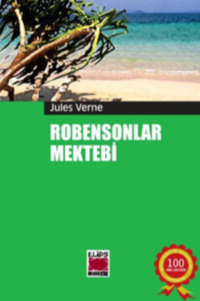
Полная версия
20,000 Leagues Under The Sea
‘It looks like it,’ said I, reading the letter again.
‘Well, we must accept,’ replied the Canadian. ‘Once on land we can decide what to do. Besides, I shall not be sorry to eat some fresh meat.’
I consulted the planisphere as to the whereabouts of the island of Crespo, and in 32° 40’ north lat. and 167° 50’ west long. I found a small island, reconnoitred in 1801 by Captain Crespo, and marked in old Spanish maps as Rocca de la Plata, or ‘Silver Rock.’ We were then about 1800 miles from our starting-point, and the course of the Nautilus, a little changed, was bringing it back towards the south-east. I pointed out to my companions the little rock lost in the midst of the North Pacific.
‘If Captain Nemo does land sometimes,’ I said, ‘he at least chooses quite desert islands.’
Ned Land shrugged his shoulders without speaking, and he and Conseil left me. After supper, which was served by the mute and impassible steward, I went to bed, not without some anxiety.
The next day, when I awoke, I felt that the Nautilus was perfectly still. I dressed quickly and went to the saloon.
Captain Nemo was there waiting for me. He rose, bowed, and asked me if it was convenient for me to accompany him.
‘May I ask you, captain,’ I said, ‘how it is that, having broken all ties with earth, you possess forests in Crespo Island?’
‘Professor,’ answered the captain, ‘my forests are not terrestrial forests but submarine forests.’
‘Submarine!’ I exclaimed.
‘Yes, professor.’
‘And you offer to take me to them?’
‘Yes, and dry footed too.’
‘But how shall we hunt? – with a gun?’
‘Yes, with a gun.’
I thought the captain was gone mad, and the idea was expressed on my face, but he only invited me to follow him like a man resigned to anything. We entered the dining-room, where breakfast was laid.
‘M. Aronnax,’ said the captain, ‘will you share my breakfast without ceremony? We will talk as we eat. You will not find a restaurant in our walk, though you will a forest. Breakfast like a man who will probably dine late.’
I did honour to the meal. It was composed of different fish and slices of holithuria, excellent zoophytes, cooked with different sea-weeds. We drank clear water, and, following the captain’s example, I added a few drops of some fermented liquor, extracted by the Kamschatchan method from a sea-weed known under the name of Rhodomenia, palmata. Captain Nemo went on eating at first without saying a word. Then he said to me, –
‘When I invited you to hunt in my submarine forests, you thought I was mad. You judged me too lightly. You know as well as I do that man can live under water, providing he takes with him a provision of air to breathe. When submarine work has to be done, the workman, clad in an impervious dress, with his head in a metal helmet, receives air from above by means of pumps and regulators.’
‘Then it is a diving apparatus?’
‘Yes, but in one that enables him to get rid of the india-rubber tube attached to the pump. It is the apparatus, invented by two of your countrymen, but which I have brought to perfection for my own use, and which will allow you to risk yourself in the water without suffering. It is composed of a reservoir of thick iron plates, in which I store the air under a pressure of fifty atmospheres. This reservoir is fastened on to the back by means of braces, like a soldier’s knapsack; its upper part forms a box, in which the air is kept by means of bellows, and which cannot escape except at its normal tension. Two india-rubber pipes leave this box and join a sort of tent, which imprisons the nose and mouth; one introduces fresh air, the other lets out foul, and the tongue closes either according to the needs of respiration. But I, who encounter great pressure at the bottom of the sea, am obliged to shut my head in a globe of copper, into which the two pipes open.’
‘Perfectly, Captain Nemo; but the air that you carry with you must soon be used up, for as soon as it only contains fifteen per cent, of oxygen, it is no longer fit to breathe.’
‘I have already told you, M. Aronnax, that the pumps of the Nautilus allow me to store up air under considerable pressure, and under these conditions the reservoir of the apparatus can furnish breathable air for nine or ten hours.’
‘I have no other objection to make,’ I answered. ‘I will only ask you one thing, captain. How do you light your road at the bottom of the ocean?’
‘With the Ruhmkorff apparatus, M. Aronnax. It is composed of a Bunsen pile, which I work with sodium. A wire is introduced, which collects the electricity produced, and directs it towards a particularly-made lantern. In this lantern is a spiral glass which contains a small quantity of carbonic gas. When the apparatus is at work the gas becomes luminous, and gives out a white and continuous light. Thus provided, I breathe and see.’
‘But, Captain Nemo, what sort of a gun do you use?’
‘It is not a gun for powder, but an air-gun. How could I manufacture gunpowder on board without either saltpetre, sulphur, or charcoal?’
‘Besides,’ I added, ‘to fire under water in a medium 855 times denser than air, very considerable resistance would have to be conquered.’
‘That would be no difficulty. There exist certain Felton guns, furnished with a system of closing, which can be fired under these conditions. But, I repeat, having no powder, I use air under great pressure, which the pumps of the Nautilus furnish.’
‘But this air must be rapidly consumed.’
‘Well, have I not my Rouquayrol reservoir, which can furnish me with what I need? Besides, you will see for yourself, M. Aronnax, that during these submarine shooting excursions you do not use much air or bullets.’
‘But it seems to me that in the half-light, and amidst a liquid so much more dense than the atmosphere, bodies cannot be projected far, and are not easily mortal.’
‘Sir, with these guns every shot is mortal, and as soon as the animal is touched, however slightly, it falls.’
‘Why?’
‘Because they are not ordinary bullets. We use little glass percussion-caps, of which I have a considerable provision. These glass caps, covered with steel, and weighted with a leaden bottom, are little Leyden bottles, in which electricity is forced to a high tension. At the slightest shock they go off, and the animal, however powerful, falls dead. These caps are not larger than the No. 4, and the charge of an ordinary gun could contain ten.’
‘I will argue no longer,’ I replied, rising from the table. ‘The only thing left me is to take my gun. Where you go I will follow.’
Captain Nemo then led me aft of the Nautilus, and I called my two companions, who followed me immediately. Then we came to a kind of cell, situated near the engine-room, in which we put on our walking dress.
CHAPTER 16 At the Bottom of the Sea
This cell was the arsenal and wardrobe of the Nautilus. A dozen diving apparatus, hung from the wall, awaited our use.
Ned Land, seeing them, manifested evident repugnance to put one on.
‘But, my worthy Ned,’ I said, ‘the forests of Crespo Island are only submarine forests!’
The disappointed harpooner saw his dreams of fresh meat fade away.
‘And you, M. Aronnax, are you going to put one on?’
‘I must, Master Ned.’
‘You can do as you please, sir,’ replied the harpooner, shrugging his shoulders, ‘but as for me, unless I am forced, I will never get into one.’
‘No one will force you,’ said Captain Nemo.
‘Does Conseil mean to risk it?’ said Ned.
‘I shall follow monsieur wherever he goes,’ answered Conseil.
Two of the ship’s crew came to help us on the call of the captain, and we donned the heavy and impervious clothes made of seamless india-rubber, and constructed expressly to resist considerable pressure. They looked like a suit of armour, both supple and resisting, and formed trousers and coat; the trousers were finished off with thick boots, furnished with heavy leaden soles. The texture of the coat was held together by bands of copper, which crossed the chest, protecting it from the pressure of the water, and leaving the lungs free to act; the sleeves ended in the form of supple gloves, which in no way restrained the movements of the hands.
Captain Nemo and one of his companions – a sort of Hercules, who must have been of prodigious strength – Conseil, and myself, were soon enveloped in these dresses. There was nothing left but to put our heads into the metallic globes. But before proceeding with this operation I asked the captain’s permission to examine the guns we were to take.
One of the crew gave me a simple gun, the butt end of which, made of steel and hollowed in the interior, was rather large; it served as a reservoir for compressed air, which a valve, worked by a spring, allowed to escape into a metal tube. A box of projectiles, fixed in a groove in the thickness of the butt end, contained about twenty electric bullets, which, by means of a spring, were forced into the barrel of the gun. As soon as one shot was fired another was ready.
‘Captain Nemo,’ said I, ‘this arm is perfect and easily managed; all I ask now is to try it. But how shall we gain the bottom of the sea?’
‘At this moment, professor, the Nautilus is stranded in five fathoms of water, and we have only to start.’
‘But how shall we get out?’
‘You will soon see.’
Captain Nemo put on his helmet. Conseil and I did the same, not without hearing an ironical ‘Good sport’ from the Canadian. The upper part of our coat was terminated by a copper collar, upon which the metal helmet was screwed. As soon as it was in position the apparatus on our backs began to act, and, for my part, I could breathe with ease.
I found when I was ready, lamp and all, that I could not move a step. But this was foreseen. I felt myself pushed along a little room contiguous to the wardrobe-room. My companions, tugged along in the same way, followed me. I heard a door, furnished with obturators, close behind us, and we were wrapped in profound darkness.
After some minutes I heard a loud whistling, and felt the cold mount from my feet to my chest. It was evident that they had filled the room in which we were with sea-water by means of a tap. A second door in the side of the Nautilus opened then. A faint light appeared. A moment after, our feet were treading the bottom of the sea.
And now, how could I retrace the impression made upon me by that walk under the sea? Words are powerless to describe such marvels. When the brush itself is powerless to depict the particular effects of the liquid element, how can the pen reproduce them?
Captain Nemo walked on in front, and his companion followed us some steps behind. Conseil and I remained near one another, as if any exchange of words had been possible through our metallic covering. I no longer felt the weight of my clothes, shoes, air-reservoir, nor of that thick globe in the midst of which my head shook like an almond in its shell.
The light which lighted up the ground at thirty feet below the surface of the ocean astonished me by its power. The solar rays easily pierced this watery mask and dissipated its colour. One easily distinguished objects 120 yards off. Beyond that the tints faded into fine gradations of ultra-marine, and became effaced in a vague obscurity. The water around me only appeared a sort of air, denser than the terrestrial atmosphere, but nearly as transparent. Above me I perceived the calm surface of the sea.
We were walking on fine even sand, not wrinkled, as it is on a flat shore which keeps the imprint of the billows. This dazzling carpet reflected the rays of the sun with surprising intensity. At that depth of thirty feet I saw as well as in open daylight!
For a quarter of an hour I trod on this shining sand, sown with the impalpable dust of tinted shells. The hull of the Nautilus, looking like a long rock, disappeared by degrees; but its lantern, when night came, would facilitate our return on board. I put back with my hands the liquid curtains which closed again behind me, and the print of my steps was soon effaced by the pressure of the water.
I soon came to some magnificent rocks, carpeted with splendid zoophytes, and I was at first struck by a special effect of this medium.
It was then 10 a.m. The rays of the sun struck the surface of the waves at an oblique angle, and at their contact with the light, composed by a refraction as through a prism, flowers, rocks, plants, and polypi were shaded at their edges by the seven solar colours; it was a grand feast for the eyes this complication of tints, a veritable kaleidoscope of green, yellow, orange, violet, indigo, and blue – in a word, all the palette of an enthusiastic colourist.
Before this splendid spectacle Conseil and I both stopped. Variegated isis, clusters of pure tuffed coral, prickly fungi and anemones adhering by their muscular disc, made perfect flower-beds, enamelled with porphitae, decked with their azure tentacles, sea-stars studding the sand, and warted asterophytons, like fine lace embroidered by the hands of Naüads, whose festoons waved in the gentle undulations caused by our walk. It was quite a grief to me to crush under my feet the brilliant specimens of mulluscs which lay on the ground by thousands, the concentric combs, the hammerheads, the donaces, real bounding shells, the broques, the red helmets, the angel-winged strombes, the aphysies, and many other products of the inexhaustible ocean. But we were obliged to keep on walking, whilst above our heads shoals of physalia, letting their ultramarine tentacles float after them, medusae, with their rose-pink opaline parasols festooned with an azure border, sheltered us from the solar rays, and panophyrian pelegies, which, had it been dark, would have showered their phosphorescent gleams over our path.
All these wonders I saw in the space of a quarter of a mile. Soon the nature of the soil changed; to the sandy plains succeeded an extent, of slimy mud composed of equal parts of siliceous and calcareous shells. Then we travelled over meadows of seaweed so soft to the foot that they would rival the softest carpet made by man. And at the same time that verdure was spread under our feet, marine plants were growing on the surface of the ocean. I saw long ribbons of fucus floating, some globular and others tubulous; laurenciae and cladostephi, of most delicate foliage, and some rhodomeniae and palmatae resembling the fan of a cactus. I noticed that the green plants kept near the surface, whilst the red occupied a middle depth, leaving to the black or brown hydrophytes the care of forming gardens and flower-beds in the remote depths of the ocean. The family of seaweeds produces the largest and smallest vegetables of the globe.
We had left the Nautilus about an hour and a half. It was nearly twelve o’clock; I knew that by the perpendicularity of the sun’s rays, which were no longer refracted. The magical colours disappeared by degrees, and the emerald and sapphire tints died out. We marched along with a regular step which rang upon the ground with astonishing intensity; the slightest sound is transmitted with a speed to which the ear is not accustomed on the earth – in fact, water is a better conductor of sound than air in the ratio of four to one.
The ground gradually sloped downwards, and the light took a uniform tint. We are at a depth of more than a hundred yards, and bearing a pressure of ten atmospheres. But my diving apparatus was so small that I suffered nothing from this pressure. I merely felt a slight discomfort in my finger-joints, and even that soon disappeared. As to the fatigue that this walk in such unusual harness might be expected to produce, it was nothing. My movements, helped by the water, were made with surprising facility.
At this depth of three hundred feet I could still see the rays of the sun, but feebly. To their intense brilliancy had succeeded a reddish-twilight, middle term between day and night. Still we saw sufficiently to guide ourselves, and it was not yet necessary to light our lamps.
At that moment Captain Nemo stopped. He waited for me to come up to him, and with his finger pointed to some obscure masses which stood out of the shade at some little distance.
‘It is the forest of Crespo Island,’ I thought, and I was not mistaken.
CHAPTER 17 A Submarine Forest
We had at last arrived on the borders of this forest, doubtless one of the most beautiful in the immense domain of Captain Nemo. He looked upon it as his own, and who was there to dispute his right? This forest was composed of arborescent plants, and as soon as we had penetrated under its vast arcades, I was struck at first by the singular disposition of their branches, which I had not observed before.
None of those herbs which carpeted the ground – none of the branches of the larger plants, were either bent, drooped, or extended horizontally. There was not a single filament, however thin, that did not keep as upright as a rod of iron. The fusci and llianas grew in rigid perpendicular lines, commanded by the density of the element which had produced them. When I bent them with my hand these plants immediately resumed their first position. It was the reign of perpendicularity.
I soon accustomed myself to this fantastic disposition of things, as well as to the relative obscurity which enveloped us. The soil of the forest seemed covered with sharp blocks difficult to avoid. The submarine flora appeared to me very perfect, and richer than it would have been in the Arctic or tropical zones, where these productions are less numerous. But for some minutes I involuntarily confounded the genera, taking zoophytes for hydrophytes, animals for plants. And who would not have been mistaken? The fauna and flora are so nearly allied in this submarine world.
I noticed that all these productions of the vegetable kingdom had no roots, and only held on to either sand, shell, or rock. These plants drew no vitality from anything but the water. The greater number, instead of leaves, shot forth blades of capricious shapes, comprised within a scale of colours – pink, carmine, red, olive, fawn, and brown.
Amongst these different shrubs, as large as the trees of temperate zones, and under their humid shade, were massed veritable bushes of living flowers, hedges of zoophytes, on which blossomed meandrina with tortuous stripes, yellow cariophylles with transparent tentacles, grassy tufts of zoantharia, and, to complete the illusion, the fish-flies flew from branch to branch like a swarm of humming birds, whilst yellow lepisacomthi, with bristling jaws, dactylopteri, and monocentrides rose at our feet like a flight of snipes.
About one o’clock Captain Nemo gave the signal to halt. I, for my part, was not sorry, and we stretched ourselves under a thicket of alariae, the long thin blades of which shot up like arrows.
This short rest seemed delicious to me. Nothing was wanting but the charm of conversation, but it was impossible to speak – I could only approach my large copper head to that of Conseil. I saw the eyes of the worthy fellow shine with contentment, and he moved about in his covering in the most comical way in the world.
After this four hours’ walk I was much astonished not to find myself violently hungry, and I cannot tell why, but instead I was intolerably sleepy, as all divers are. My eyes closed behind their thick glass, and I fell into an unavoidable slumber, which the movement of walking had alone prevented up till then. Captain Nemo and his robust companion, lying down in the clear crystal, set us the example.
How long I remained asleep I cannot tell, but when I awoke the sun seemed sinking towards the horizon. Captain Nemo was already on his feet, and I was stretching myself when an unexpected apparition brought me quickly to my feet.
A few steps off an enormous sea-spider, more than a yard high, was looking at me with his squinting eyes, ready to spring upon me. Although my dress was thick enough to defend me against the bite of this animal, I could not restrain a movement of horror. Conseil and the sailor of the Nautilus awoke at that moment. Captain Nemo showed his companions the hideous crustacean, and a blow from the butt-end of a gun killed it, and I saw its horrible claws writhe in horrible convulsions.
This accident reminded me that other animals, more to be feared, might haunt these obscure depths, and that my diver’s dress would not protect me against their attacks. I had not thought of that before, and resolved to be on my guard. I supposed that this halt marked the limit of our excursion, but I was mistaken, and instead of returning to the Nautilus, Captain Nemo went on.
The ground still inclined and took us to greater depths. It must have been about three o’clock when we reached a narrow valley between two high cliffs, situated about seventy-five fathoms deep. Thanks to the perfection of our apparatus, we were forty-five fathoms below the limit which Nature seems to have imposed on the submarine excursions of man.
I knew how deep we were because the obscurity became so profound – not an object was visible at ten paces. I walked along groping when I suddenly saw a white light shine out. Captain Nemo had just lighted his electric lamp. His companion imitated him. Conseil and I followed their example. By turning a screw I established the communication between the spool and the glass serpentine, and the sea, lighted up by our four lanterns, was illuminated in a radius of twenty-five yards.
Captain Nemo still kept on plunging into the dark depths of the forest, the trees of which were getting rarer and rarer. I remarked that the vegetable life disappeared sooner than the animal. The medusae had already left the soil, which had become arid, whilst a prodigious number of animals, zoophytes, articu-lata, molluscs, and fish swarmed there still.
As we walked I thought that the light of our apparatus could not fail to draw some inhabitants from these sombre depths. But if they did approach us they at least kept a respectable distance. Several times I saw Captain Nemo stop and take aim; then, after some minutes’ observation, he rose and went on walking.
At last, about four o’clock, this wonderful excursion was ended. A wall of superb rocks rose up before us, enormous granite cliffs impossible to climb. It was the island of Crespo. Captain Nemo stopped suddenly. We stopped at a sign from him. Here ended the domains of the captain.
The return began. Captain Nemo again kept at the head of his little band, and directed his steps without hesitation. I thought I perceived that we were not returning to the Nautilus by the road we had come. This new one was very steep, and consequently very painful. We approached the surface of the sea rapidly. But this return to the upper beds was not so sudden as to produce the internal lesions so fatal to divers. Very soon light reappeared and increased, and as the sun was already low on the horizon refraction edged the different objects with a spectral ring.
At a depth of ten yards we were walking in a swarm of little fish of every sort, more numerous than birds in the air, and more agile too. But no aquatic game worthy of a shot had as yet met our gaze.
At that moment I saw the captain put his gun to his shoulder and follow a moving object into the shrubs. He fired, I heard a feeble hissing, and an animal fell a few steps from us.
It was a magnificent sea-otter, the only quadruped which is exclusively marine. This otter was five feet long, and must have been very valuable. Its skin, chestnut-brown above and silvery underneath, would have made one of those beautiful furs so sought after in the Russian and Chinese markets; the fineness and lustre of its coat was certainly worth eighty pounds. I admired this curious mammal – its rounded head and short ears, round eyes and white whiskers, like those of a cat, with webbed feet and claws and tufted tail. This precious animal, hunted and tracked by fishermen, is becoming very rare, and it takes refuge principally in the northern parts of the Pacific, where it is likely that its race will soon become extinct. Captain Nemo’s companion took up the animal and threw it over his shoulders, and we continued our route.








